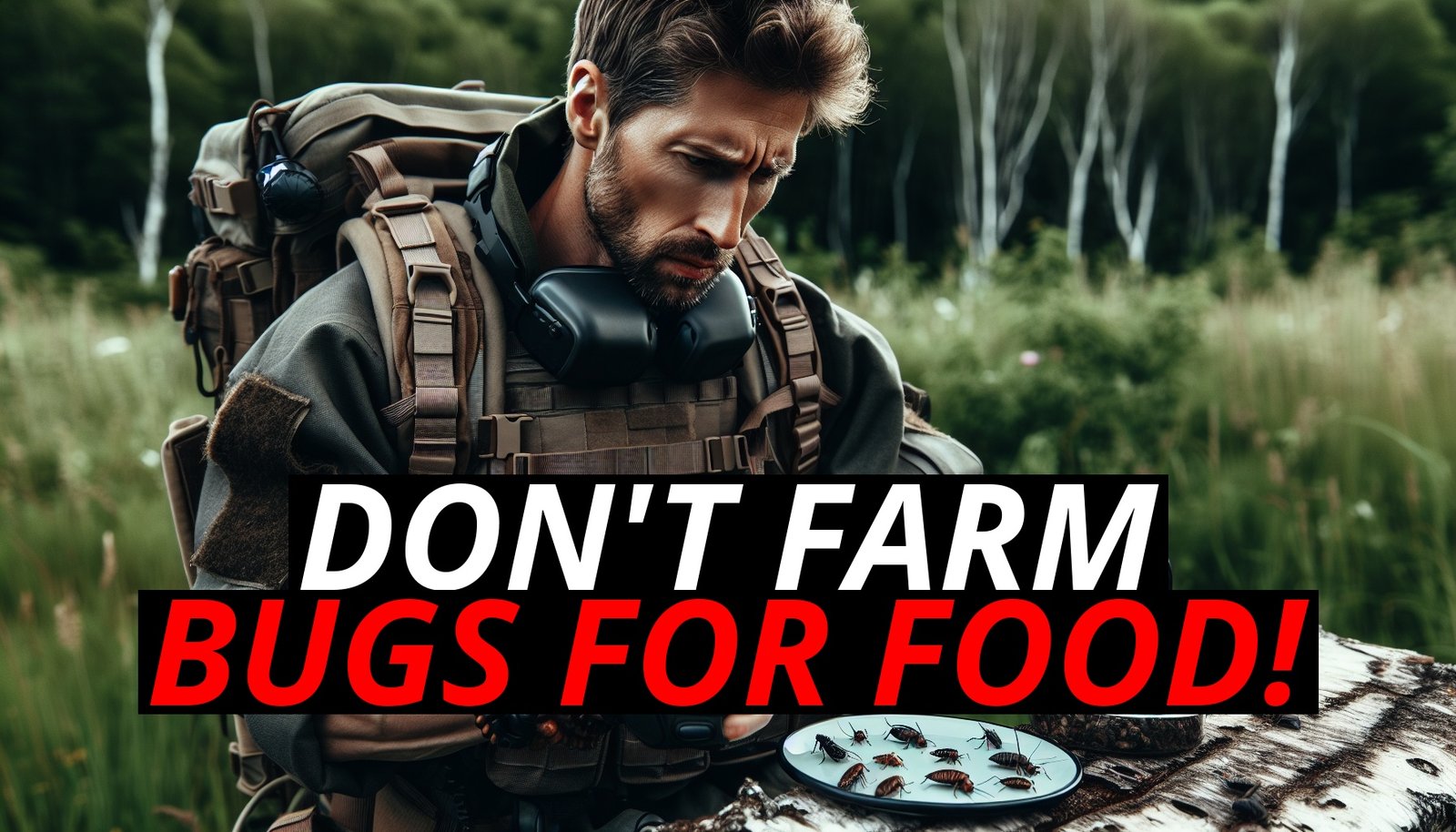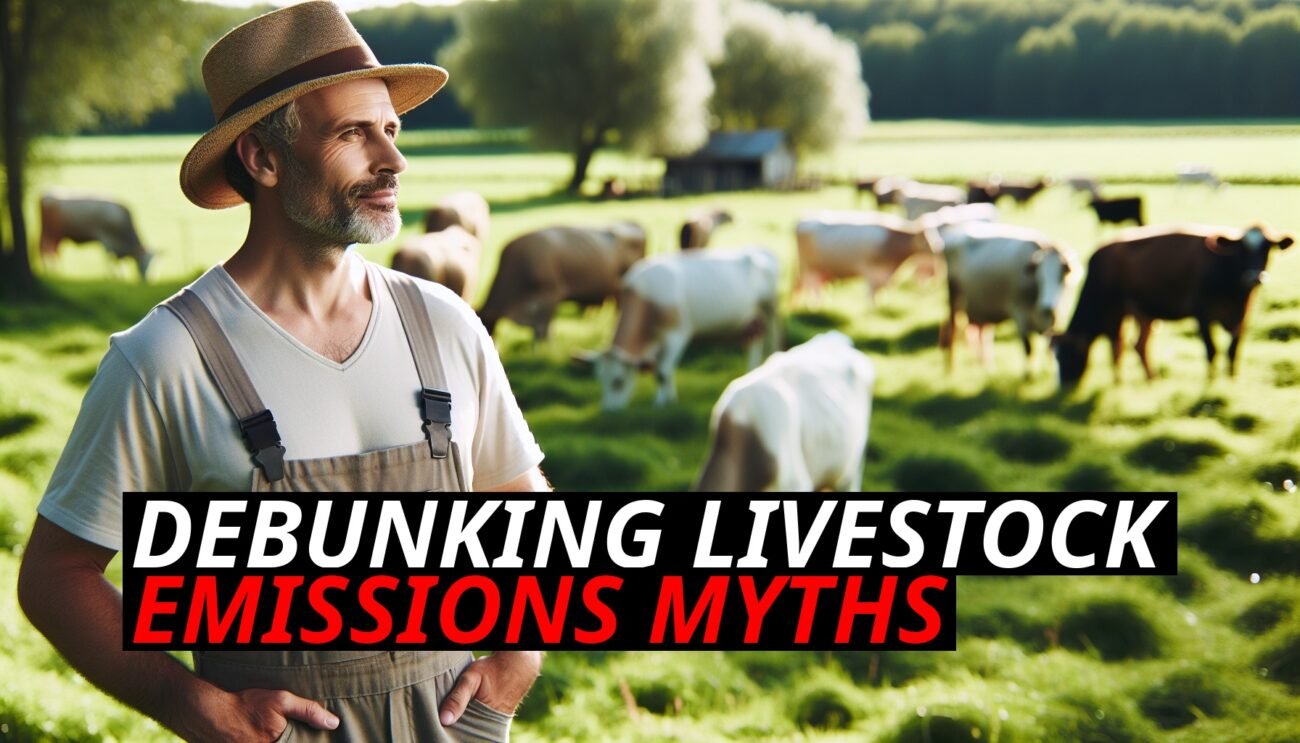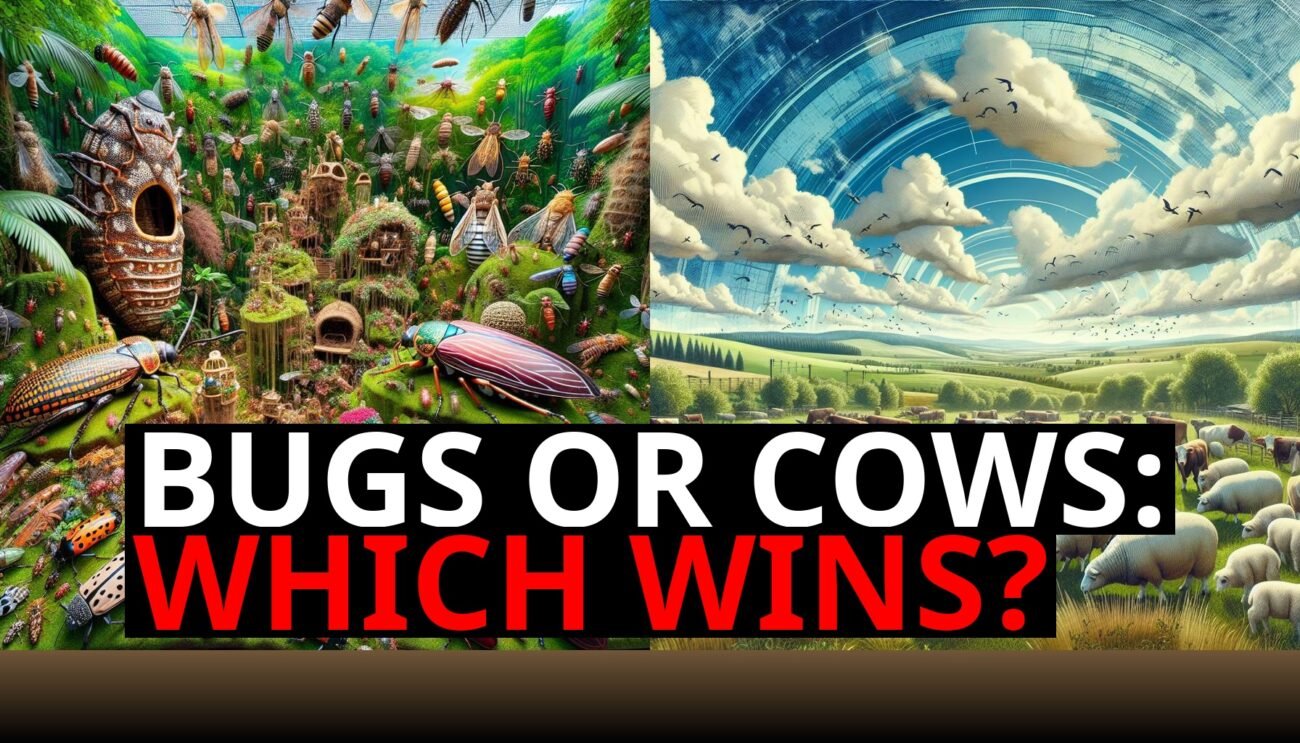Imagine being lost in the wilderness with limited food options. What would you do? For survivalists, the answer is often found in opportunistic foraging—including bugs. Bugs are rich in protein and can be easily found in nature, making them a valuable resource when other food sources are scarce. However, what works in a survival situation doesn’t necessarily translate to an efficient or sustainable farming solution.
In recent years, there’s been a push to farm bugs on a large scale, with claims that they’re the future of food. But survivalists teach us a valuable lesson: bugs are best used opportunistically, not as farmed resources. Let’s explore why farming bugs is an inefficient solution compared to using them as nature intended—and why repurposing these creatures, rather than trying to industrialize them, is the better approach.
Bugs In Survival: A Natural, Opportunistic Food Source
For survivalists, eating bugs is not a trendy lifestyle choice—it’s a practical necessity. When you’re in the wild, food can be scarce, and the ability to adapt and make use of available resources is crucial for survival. Bugs are everywhere, easy to catch, and provide a quick source of protein.
Here’s why survivalists rely on bugs in the wild:
- Abundant and accessible: Bugs like crickets, grasshoppers, and mealworms are common in many environments. They don’t require specialized tools to catch, making them an ideal fallback food source when larger game is unavailable.
- Immediate nutrition: Bugs can be eaten with minimal preparation. Roasting or boiling insects over a fire provides a quick way to obtain energy and protein in a survival situation.
- Variety of options: Depending on the region, survivalists might encounter a range of edible insects, from beetles to ants. This diversity allows them to adapt to different environments and make the most of what nature provides.
In these scenarios, bugs are consumed because they are opportunistic—there when you need them, but not something you would actively seek to farm or cultivate. They provide immediate sustenance without the need for infrastructure or planning, a far cry from the industrial farming model being proposed today.
The Inefficiency Of Bug Farming: A Misguided Solution
While bugs may serve as a practical food source in survival situations, trying to turn them into a mainstream farmed food comes with a host of inefficiencies. The idea of mass-producing bugs for food might sound like a sustainable solution, but when you dig deeper, the cracks in this theory start to show.
Here’s why farming bugs doesn’t make sense:
- Energy-intensive climate control: Bugs need specific temperatures and humidity levels to thrive. Unlike livestock, which can be raised outdoors, most bugs must be kept in climate-controlled environments. This requires energy, especially on a large scale, making bug farming more resource-intensive than advertised.
- Specialized feed: Although bugs can survive on waste in the wild, farming them for human consumption often requires specialized feed to ensure quality and nutritional consistency. This increases the cost and environmental footprint of bug farming, reducing its overall efficiency.
- Processing and infrastructure: Bugs need to be harvested, processed, and packaged for consumption, whether as whole insects or in powder form. This adds layers of complexity and cost to what is marketed as a simple solution.
In contrast, in survival scenarios, none of these processes are necessary. Bugs are eaten on the spot, without the need for processing or energy-intensive farming setups. This shows how the natural, opportunistic use of bugs is far more efficient than trying to farm them at scale.
Why Repurposing Bugs Makes More Sense
Survivalists teach us that bugs are best used as a last resort, not as a primary food source. Rather than trying to farm bugs, we could focus on repurposing them in a way that aligns with their natural abundance and minimal resource requirements.
Here are practical lessons we can take from survivalists:
- Use bugs in waste reduction: Bugs can be used in waste management systems to break down organic waste. Black soldier fly larvae, for example, are excellent at converting food scraps into valuable protein, which can be used for animal feed. This keeps bugs in their natural role as decomposers rather than turning them into a food source for humans.
- Supplemental animal feed: Instead of focusing on bug farming for human consumption, we could repurpose insects as animal feed. Chickens, fish, and other livestock can naturally consume insects, reducing the need for grain-based feed and improving sustainability in existing food systems.
- Pest control: Insects can also play a role in natural pest control. Certain species of insects can help control crop-damaging pests without the need for chemical pesticides, promoting healthier ecosystems and more sustainable farming practices.
By repurposing bugs in these ways, we can maximize their potential without the need for complex, resource-intensive farming operations.
The Limits Of Bug Farming Compared To Traditional Livestock
Another reason bug farming falls short is that it simply can’t compete with the efficiency and nutritional value of traditional livestock farming. While bugs are touted as a sustainable protein source, they don’t offer the same range of benefits as eggs, dairy, or meat.
- Nutritional limitations: Bugs are high in protein, but they lack essential fats and fat-soluble vitamins like A, D, and E that are found in higher quantities in traditional animal products. These nutrients are crucial for human health, and relying on bugs as a primary food source would leave many people nutritionally deficient.
- Economic scalability: While bug farms require expensive infrastructure to maintain the right environmental conditions, traditional livestock farming—especially with regenerative practices—can be done more sustainably and with fewer technological inputs. Cows, chickens, and sheep can graze on land unsuitable for crops, converting inedible grass into valuable protein and fats.
- Cultural resistance: In most parts of the world, people are far more accustomed to eating eggs, milk, and meat than bugs. The cultural and psychological barriers to bug consumption are significant, making it difficult to convince the general public to adopt bugs as a primary protein source, no matter how environmentally friendly it’s marketed to be.
These factors highlight the limitations of bug farming when compared to sustainable livestock practices that have been honed over centuries.
What We Can Learn From Survivalists
Survivalists show us that adaptability is key in making the most of available resources. Bugs and other small animals can provide temporary relief in times of food scarcity, but they aren’t the ultimate solution to the world’s food challenges. By focusing on repurposing bugs and utilizing them in more natural, sustainable ways—such as waste management or supplemental animal feed—we can make use of their strengths without trying to industrialize something that doesn’t belong in a farm.
Just as survivalists use bugs as a last resort when larger food sources aren’t available, we should view bug consumption through the same lens: as a niche, opportunistic food source that works best in specific contexts, but not as the cornerstone of our food system.
Conclusion: Bugs Aren’T The Farming Solution We Need
While the idea of bug farming may sound futuristic and eco-friendly, the reality is that it’s an inefficient and resource-intensive solution that doesn’t hold up to closer scrutiny. Survivalists have long understood the value of bugs as a last-resort food source, but trying to farm them on a large scale overlooks the natural efficiency of using them opportunistically.
Rather than trying to turn bugs into the next big food trend, we should focus on repurposing them in ways that align with their natural role in the ecosystem—whether as animal feed, waste reducers, or pest control agents. The lesson from survivalists is clear: bugs are useful in specific situations, but they aren’t the farming solution we need for a sustainable future.













